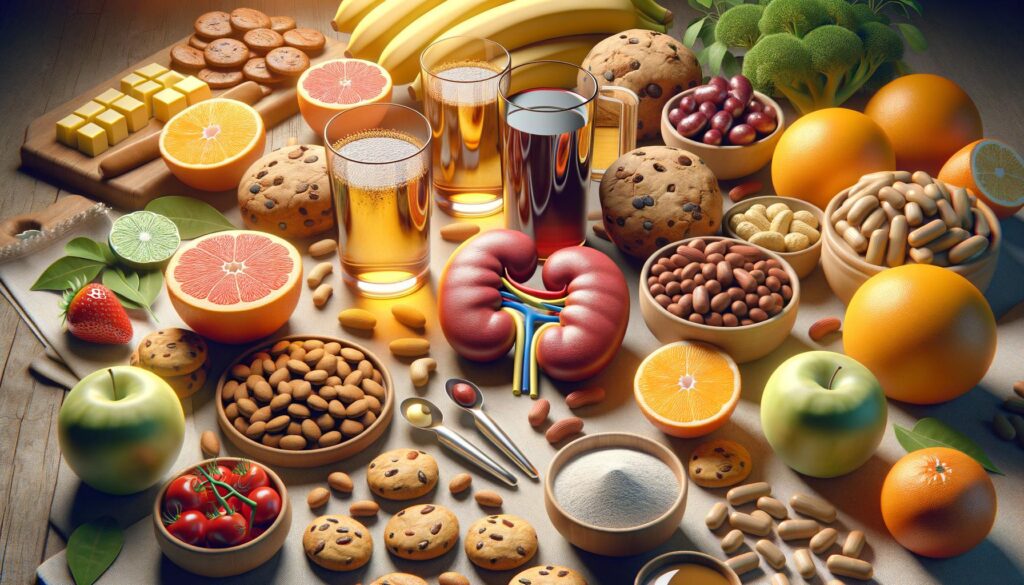Foods and Drinks Kidney Patients Should Avoid

Understanding Kidney Function and Diet
The kidneys play a crucial role in filtering waste and excess fluids from the blood. When they are not functioning optimally, dietary modifications become a vital part of managing health. For those with chronic kidney disease (CKD) or impaired kidney function, it’s essential to adhere to a diet that minimizes the intake of certain substances that can exacerbate kidney issues. Key nutrients such as sodium, potassium, and phosphorus must be monitored closely, as an imbalance can lead to further health complications.
Some foods and drinks, even those generally considered healthy, may contain high levels of these nutrients that could prove detrimental for kidney patients. Therefore, understanding and identifying which items to avoid can help maintain better kidney health.
Sodium-Rich Foods
Excessive sodium can increase blood pressure and aggravate kidney problems. It’s crucial for kidney patients to maintain a low-sodium diet to help manage their condition.
- Processed foods: Items like canned soups, frozen meals, and processed meats often contain high levels of sodium.
- Salty snacks: Potato chips, pretzels, and salted nuts should be avoided or consumed in minimal amounts.
- Restaurant meals: Dining out frequently can lead to increased sodium intake, especially in fast food or casual dining establishments where salt is a common ingredient.
Reducing sodium intake helps in lowering blood pressure and preventing the buildup of excess fluid, thus easing the strain on the kidneys.
High-Potassium Foods
Kidneys regulate potassium levels, and when they are not functioning well, high potassium levels can lead to dangerous heart conditions.
- Bananans and oranges: While nutritious, these fruits should be limited due to their high potassium content.
- Potatoes: A staple in many diets, potatoes are high in potassium, and their consumption should be moderated or prepared in ways that reduce potassium levels, such as leaching.
- Tomatos: Often found in many sauces and juices, tomatoes can significantly contribute to potassium intake.
Monitoring and managing potassium intake is essential to prevent hyperkalemia, which can lead to muscle weakness, fatigue, and irregular heartbeats.
Phosphorous-Inducing Foods
Phosphorus is another mineral that the kidneys filter. Inadequate kidney function reduces this ability, leading to high blood phosphorus levels.
- Dairy products: Milk, cheese, and yogurt tend to have high phosphorus content.
- Dark-colored sodas: Many soft drinks contain phosphorus additives.
- Processed junk foods: These often contain phosphate additives that can quickly add up to unsafe levels.
High phosphorus levels can result in weakened bones over time, so it’s crucial to manage phosphorus through diet and, if necessary, medication under medical guidance.
Beverages to Limit or Avoid
Kidney patients must also be cautious about their beverage choices, as some drinks can negatively impact kidney health.
- Alcohol: Excessive alcohol can cause dehydration and strain the kidneys.
- Caffeine: Found in coffee, tea, and many sodas, caffeine can increase blood pressure, which is harmful to those with kidney issues.
- High-sugar drinks: Sodas and sweetened juices can lead to increased calorie intake and weight gain, which can put extra pressure on the kidneys.
Opting for water and kidney-friendly fluids helps to maintain adequate hydration without overburdening the kidneys.
Conclusion: Navigating Dietary Choices
For kidney patients, making informed dietary choices is key to managing their health. While it involves some adjustments, understanding the impact of specific foods and drinks can significantly help in maintaining kidney function. By carefully planning meals and watching nutrient intake, patients can reduce complications and enjoy a balanced diet that supports their overall well-being. Physicians and dietitians can provide personalized guidance, ensuring that dietary modifications cater to individual health needs and preferences.
